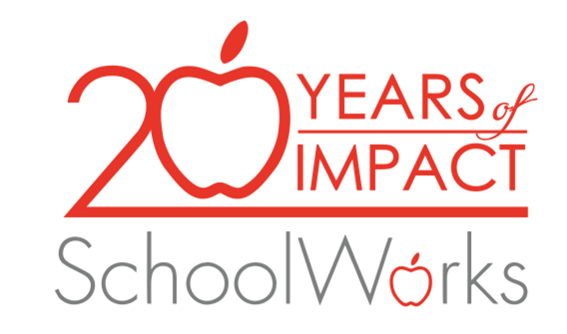SchoolWorks Contributor: Betty Dao
In November 2011, Chicago Public Schools introduced the Chicago Leadership Collaborative (CLC) – a structured partnership between Chicago Public Schools and principal development programs. Its purpose was to create a pipeline of highly-qualified leaders to meet the district’s needs well into the future. And the results of this investment have been the focus of much recent interest and press, mainly because the thinking behind this collaborative effort is somewhat revolutionary.
Traditionally, ongoing and high-quality professional development for principals has not been not a priority – or even a consideration – for most districts and schools; there is no line item for such investments within tight operational budgets. The 2015 Every Student Succeeds Act made federal funds available for the purpose of investing in leadership development programs. However, schools still struggle to understand what supports are available, how they work, and how the investment contributes to school success.
One of the most common supports for school leaders is coaching – a one-on-one ongoing partnership between a school leader and a coach or mentor designed to support reflection and skills development. When optimally facilitated, this relationship provides the principal with structured focus and helps him/her develop leadership skills to foster school improvement. Studies have shown that the typical coaching relationship entails one-to-two-hours twice a month in coaching sessions at the school site, complemented by e-mail and phone conversations over the course of a year. While these engagements have proven successful from a school improvement standpoint, published information about the cost of such programs is virtually nonexistent, leading to questions regarding the cost effectiveness of this approach. (One study reported that the cost of the coaching for State-level novice administrators in Arkansas, Indiana, Mississippi, Ohio, and Tennessee ranged from $80,000 to more than $1 million.) And, if facilitated via a contracted or salaried individual coach[1], the success of this intervention can be wholly dependent on both the knowledge and skills of the coach and the receptiveness and willingness of the school leader. These factors can make coaching appear to be a risky investment.
Is there an alternative to coaching?
In facilitating the highly successful Successor Prep leadership development program on behalf of the KIPP Foundation for the past six years, SchoolWorks has developed some keen insights into leadership supports and interventions that take the considerations of cost, time, and efficacy into account. The KIPP Successor Prep program helps rising KIPP school leaders navigate leadership transition by training them on how to manage change, plan for transition, develop a strategic plan, coach teachers, and manage staff performance. It is a year-long cohort-based program that entails six interactive in-person workshops for participants of varying lengths that span from pre-job training (before the leader assumes his/her role) to on-the-job training during the first six months of the position. SchoolWorks leads the Strategic Planning for Student Achievement session. Although the Successor Prep program is specifically designed for the purpose of increasing the retention of rising school leaders, its format is highly adaptable as an alternative to traditional leadership coaching.
SchoolWorks has taken the format of this intervention to create a support for leadership teams in a single school that is both more affordable and less risky than traditional leadership coaching – the EPIC (Evaluation, Planning & Implementation Cohort) Program. Here’s how it works. A school leadership team (i.e., a principal, assistant principal(s), instructional leader(s), and key administrators) form a cohort. The cohort agrees to an annual schedule of 6-to-7 in-person facilitated workshops. Sessions in the first six months of the program focus on the creation of an annual plan. Extensive data are collected and analyzed about the school, and participants perform a “gap analysis” of the data to identify and prioritize areas of need that will be strategically addressed. The plan is collectively developed, and cohort members commit to administer the outlined strategies. As workshops continue, the cohort is supported and held accountable for the implementation of the plan. During these sessions, participants are guided through the process of monitoring the results of their strategic interventions and pivoting their actions as necessary. In some cases, SchoolWorks will administer a mid-course School Quality Review in order to provide direct feedback on the implementation of the action plan. At the end of the process, progress toward the identified goals is clearly mapped via the achievement of benchmarks in the action plan.
What are the benefits of team action planning verses individual coaching?
- It is less risky, more strategic, and builds capacity. The established data-informed sequence of activities ensures that participants gain a deep understanding of the school’s areas of need and acquire lasting skills in data-informed action planning. Also, the process is the catalyst of the leaders’ professional development.
- It supports distributed leadership. As Jack Jennings, president of the Center on Educational Policy in Washington, D.C., said: “Leadership only succeeds if the leader brings other people along into the same vision, and they are all able to work together and trust one another.” Unfortunately, school leader coaching most often occurs in insolation. With a team of school leaders participating together, the plan is collaboratively developed and communicated, so the school leader can easily galvanize administrators into action.
- It costs less, both now and in the long term. As referenced above, coaching typically involves 150-250+ hours per year of support at a minimum. This can result in a $40,000+ investment per year in a single individual. By contrast, the per-participant cost of a cohort is a fraction of the cost of coaching, and the school develops a collective pool of talent for the future.
Support for school leaders is an essential element of school success. As schools consider investing in professional development for leaders, they must be sure to evaluate the value of the intervention in terms of its cost efficiency and the longevity of its potential impact. To learn more about the SchoolWorks EPIC Program, click here.
[1] SchoolWorks offers one-on-one coaching as a support for school leaders. To ensure the efficacy of these relationships, SchoolWorks coaching is based on data analysis; coaches follow a structured coaching program with all processes and deliverables outlined upfront.

